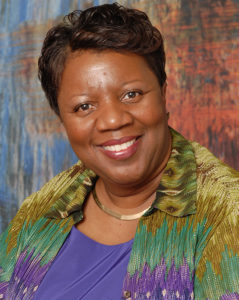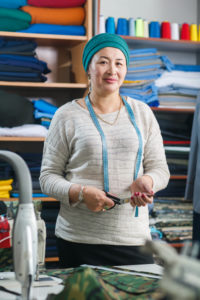International Women’s Day falls on March 8. United Church Funds (UCF) encourages you to think about investing and growing your assets with a gender lens.
Numerous studies highlight compelling business cases for including gender consideration in finance and the global economy. When women are given access to capital they can elevate their leadership, improve the economic status of their families and even create jobs.
What is Gender-Lens Investing?
Gender-lens investing is increasingly attracting the attention of socially responsible investors and is emerging as one of the most exciting strategies for creating impact through investment.
The Global Impact Investing Network defines gender lens investing as investment strategies applied to an allocation or to the entirety of an investment portfolio that seek to intentionally and measurably address gender disparities and/or examine gender dynamics to better inform investment decisions.[1]
In short, gender lens investing is about creating a just world through our investment choices and portfolios.
Incorporating Gender-Lens Investing into UCF Funds Portfolio
As a faith-based investor, UCF has been promoting gender equality as part of its socially responsible investing strategies. Since the mid-1990s, UCF and members of US SIF and the Interfaith Center on Corporate Responsibility have filed more than 100 shareholder proposals to promote board diversity.[2]
In 2019, UCF took a further step by introducing the Just World Fund. This fixed income impact fund will enable faith-based investors to leverage their investable assets to address global economic justice, fair housing, human rights to water and nutrition, and solutions for environmental security. The Fund offers investors a unique opportunity to invest in inclusive finance (impact investing) that provides financial capital products to entrepreneurs and communities traditionally excluded from the financial marketplace.
 One of the investment managers is Community Investment Management (CIM). CIM provides loans to small businesses such as McCloud & Associates, Inc., a diversified technical, professional accounting, data processing and computer consulting firm in North Carolina.
One of the investment managers is Community Investment Management (CIM). CIM provides loans to small businesses such as McCloud & Associates, Inc., a diversified technical, professional accounting, data processing and computer consulting firm in North Carolina.
Since founding her company in 1986, Valerie McCloud has grown the firm to be a community-oriented company serving business and government agencies. The company now has multiple divisions and employs over 40 people. As the company expanded into new fields, Ms. McCloud leveraged revenue from the more profitable divisions to subsidize community-oriented services.
For example, the company developed a proprietary training center to teach underemployed workers marketable skills and help them find employment opportunities that pay more than minimum wage. She also developed a non-profit department that writes grants and supports the tutoring of 400 students. With a loan funded by CIM, Ms. McCloud will expand a new division that will focus on education and youth leadership.
 Another example is Ultugan Kyzaibekova, who received a loan from MicroVest, a Just World Fund investment manager. Ms. Kyzaibekova, an entrepreneur from Almaty, Kazakhstan, owns a sewing workshop that produces wholesale clothing and uniforms. With loans funded by MicroVest, Ultugan was able to grow her business from a stall at a flea market to becoming a subcontractor for government agencies.
Another example is Ultugan Kyzaibekova, who received a loan from MicroVest, a Just World Fund investment manager. Ms. Kyzaibekova, an entrepreneur from Almaty, Kazakhstan, owns a sewing workshop that produces wholesale clothing and uniforms. With loans funded by MicroVest, Ultugan was able to grow her business from a stall at a flea market to becoming a subcontractor for government agencies.
United Church Funds believes that socially responsible and impact investing focused on elevating opportunities for women contributes to economic growth and creates a just world for all.
[1] Gender Lens Impact Investing Fact Sheet, Global Impact Investing Network
[2] Investing to Advance Women, US SIF Foundation